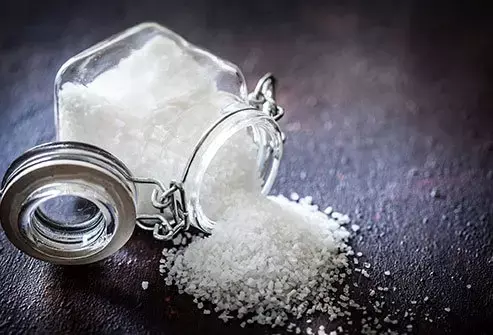- Home
- Medical news & Guidelines
- Anesthesiology
- Cardiology and CTVS
- Critical Care
- Dentistry
- Dermatology
- Diabetes and Endocrinology
- ENT
- Gastroenterology
- Medicine
- Nephrology
- Neurology
- Obstretics-Gynaecology
- Oncology
- Ophthalmology
- Orthopaedics
- Pediatrics-Neonatology
- Psychiatry
- Pulmonology
- Radiology
- Surgery
- Urology
- Laboratory Medicine
- Diet
- Nursing
- Paramedical
- Physiotherapy
- Health news
- Fact Check
- Bone Health Fact Check
- Brain Health Fact Check
- Cancer Related Fact Check
- Child Care Fact Check
- Dental and oral health fact check
- Diabetes and metabolic health fact check
- Diet and Nutrition Fact Check
- Eye and ENT Care Fact Check
- Fitness fact check
- Gut health fact check
- Heart health fact check
- Kidney health fact check
- Medical education fact check
- Men's health fact check
- Respiratory fact check
- Skin and hair care fact check
- Vaccine and Immunization fact check
- Women's health fact check
- AYUSH
- State News
- Andaman and Nicobar Islands
- Andhra Pradesh
- Arunachal Pradesh
- Assam
- Bihar
- Chandigarh
- Chattisgarh
- Dadra and Nagar Haveli
- Daman and Diu
- Delhi
- Goa
- Gujarat
- Haryana
- Himachal Pradesh
- Jammu & Kashmir
- Jharkhand
- Karnataka
- Kerala
- Ladakh
- Lakshadweep
- Madhya Pradesh
- Maharashtra
- Manipur
- Meghalaya
- Mizoram
- Nagaland
- Odisha
- Puducherry
- Punjab
- Rajasthan
- Sikkim
- Tamil Nadu
- Telangana
- Tripura
- Uttar Pradesh
- Uttrakhand
- West Bengal
- Medical Education
- Industry
Increased salt Intake tied to lower risk of ESKD in elderly, finds study

The optimal level of salt intake remains ill-defined in non-dialysis chronic kidney disease (CKD) patients under regular nephrology care. This unanswered question becomes critical in older patients who are exposed to higher risk of worsening of cardiorenal disease due to volemic changes.
Chronic Kidney Disease (CKD) patients under nephrology care show a moderate salt intake (8.4 g/day) that is lower in older versus younger patients suggest a study published in the Nephrology Dialysis Transplantation on December 1, 2020. The research team reported that salt intake of less than 6 g/day poses a greater risk of ESKD.
Hypertension and proteinuria are main surrogates of CV and renal outcomes that can be controlled by appropriate pharmacological and dietary interventions. In particular, the salt restriction has a great potential to attenuate these major complications of CKD. Indeed, extensive research in animal models and human studies suggest that dietary sodium restriction may slow the progression of renal disease and albuminuria. Previous studies have shown that a low sodium diet can potentiate the effects of the renin-angiotensin-aldosterone system (RAAS) blockade and, therefore, decrease proteinuria and blood pressure (BP) as well. The optimal level of salt intake is not well defined in non-dialysis CKD patients under regular nephrology care. This unanswered question becomes critical in older patients who are exposed to a higher risk of worsening of cardiorenal disease due to volemic changes.
Researchers conducted a pooled analysis of four prospective studies in 1785 CKD patients between ≤65 and >65 years of age who were stratified by salt intake level (<6, 6–8 and >8 g/day). They compared the risk of all-cause mortality and end-stage kidney disease (ESKD) estimated from two measurements of 24-hours urinary sodium.
Key findings of the study were:
♦ During a median follow-up of 4.0 years, They observed 383 ESKD cases and 260 deaths from any cause. The estimated glomerular filtration rate (eGFR) was 37 mL/min/1.73 m2 for the cohort overall. Researchers found eGFR was significantly higher in the younger compared with the older patients (41 vs 34 mL/min/1.73 m2).
♦ The median 24-hour urinary sodium excretion was 143 mEq for the cohort as a whole, but they observed that older patients had a significantly higher excretion rate than younger patients (147 vs 140 mEq).
♦ They noted salt intake was less than 6, 6–8 and >8 g sodium chloride/day in 21.9, 26.2 and 52.0% of older patients and 18.6, 25.2 and 56.2% in younger patients, respectively.
♦ In the overall cohort, the risks for ESKD and all-cause mortality did not differ by salt intake level, but in the older patients, salt intakes of 6-8 and more than 8 g/d were associated with a 42.3% and 43.6% decreased risk for ESKD, when compared with the reference group (<6 g/day).
♦ They reported that mortality risk was higher in older patients than in younger patients, with no difference across salt intake categories. They also observed no effect of salt intake on ESKD and mortality in younger patients.
The authors concluded, "CKD patients under nephrology care show a moderate salt intake (8.4 g/day) that is lower in older versus younger patients. In this context, older patients are not exposed to higher mortality across different levels of salt intake, while salt intake <6 g/day poses a greater risk of ESKD".
For further information:
Medical Dialogues Bureau consists of a team of passionate medical/scientific writers, led by doctors and healthcare researchers. Our team efforts to bring you updated and timely news about the important happenings of the medical and healthcare sector. Our editorial team can be reached at editorial@medicaldialogues.in.
Dr Kamal Kant Kohli-MBBS, DTCD- a chest specialist with more than 30 years of practice and a flair for writing clinical articles, Dr Kamal Kant Kohli joined Medical Dialogues as a Chief Editor of Medical News. Besides writing articles, as an editor, he proofreads and verifies all the medical content published on Medical Dialogues including those coming from journals, studies,medical conferences,guidelines etc. Email: drkohli@medicaldialogues.in. Contact no. 011-43720751


